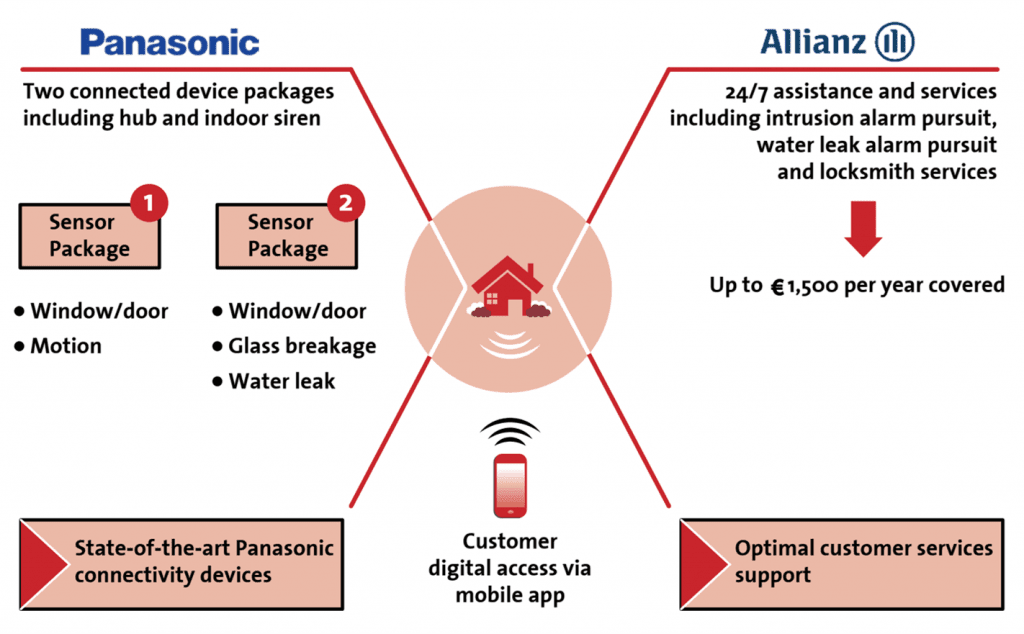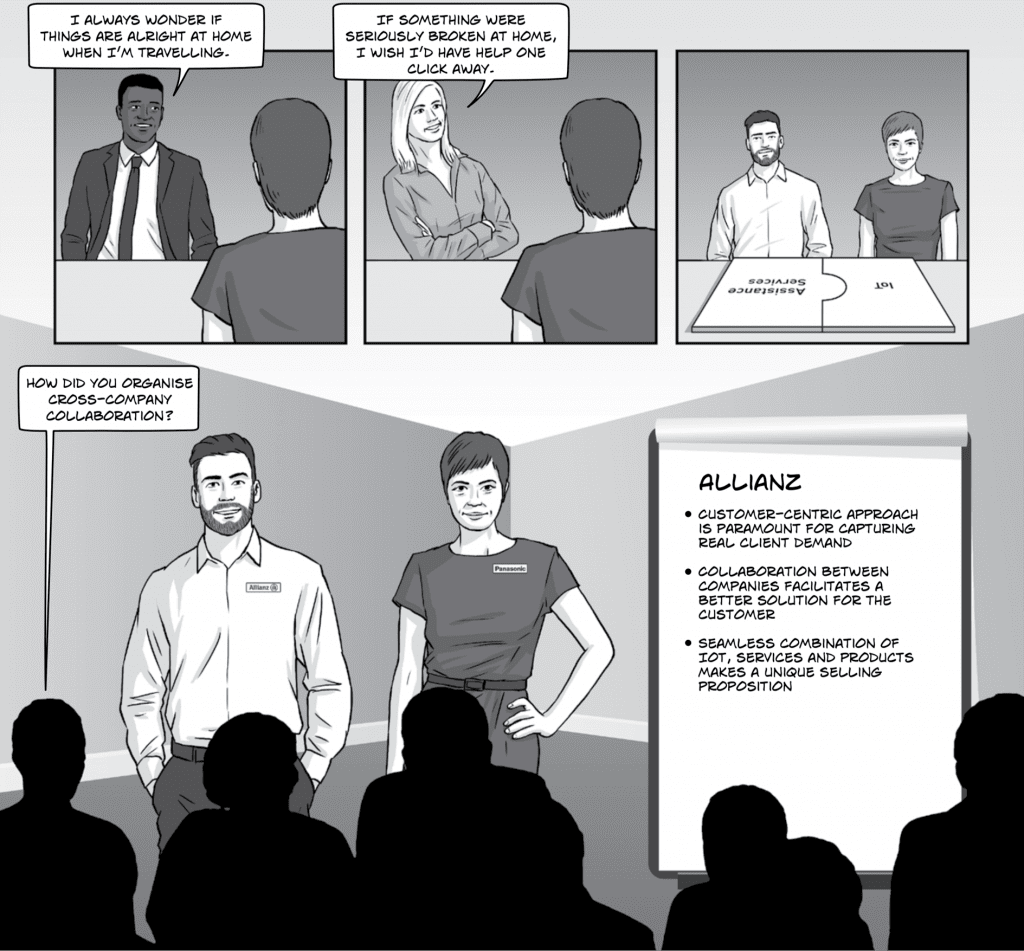In early spring 2015, Allianz Worldwide Partners (AWP) and Panasonic met to investigate joint opportunities in the Internet of things (IoT) space.
Very soon it became clear that the assets and capabilities of both corporations matched nicely to fulfil customer demands in our new, connected world:
Panasonic with their strong engineering background delivering state-of-the-art connected devices, and AWP with a strong service and insurance background delivering smart services and risk management components. On top of this, both companies have a global footprint and a clear vision to develop global offerings and customise them to local markets.

The initial focus was on the smart home. A comprehensive value proposition in the field of home security and safety was designed, following specific customer research and feedback.
The research confirmed the interest of customers in surveillance. However, it also revealed an interest in having someone help them when there is a problem occurring at home.
So, the joint team came up with the ‘Panasonic Smart Home + Allianz Assist’ product – and truly integrated the value proposition for home surveillance and control at the same time as home assistance.
The smart home technology informs and warns the customer if, for example, an intrusion, a water leak or glass breakage is detected at home. If the customer cannot solve the problem themselves (perhaps because they are on vacation), the assistance service coordinates all necessary actions, for instance sending a security guard, a plumber or a locksmith, and remedies the situation on behalf of the customer. The incurred costs for the services are deducted from an annual cash budget, which is allocated to each covered property.
All in all, a real ‘freedom of mind’ solution was created that combines IoT technology, digital and real-world services with risk management.
The partnership can be best described with a quote from Eric Ries, author of ‘The Lean Startup’: ‘think big, start small, scale fast’.
In this instance it was essential to ‘think big’ at the start and analyse the joint growth potential.
The teams looked for a strategic fit by mapping the assets and capabilities of both corporations. The global footprint and ambition of both partners also helped with the development of a marketable story inside the organisations. Crucial for the further development of the concept was the early involvement and buy-in of top management on both sides, fuelled by the ‘big story’. Both CEOs attended meetings to sharpen their shared vision.
‘Start small’ meant that the project initially started with small teams that met regularly in person, with low investment on both sides.
Given the local footprint of the team members and the market’s attractiveness, the team decided on Germany as a first pilot country.
However, the IT solution including the app, and an API connecting the Panasonic and AWP systems were built for global scale from the beginning. Even though the implementation of the product modules involved integration at both front end and back end, it was still simple and therefore easy for everybody to understand. What was clearly avoided at the beginning was to over-engineer the solution, covering all possible scenarios and arrangements. This allowed for a quick time to market of approximately six months.
One ingredient for rapid success was certainly also having one clear ‘driver’ equipped with relevant decision-making powers on both sides, i.e., Head of Innovation Allianz Worldwide Partners and Head of Marketing Smart Home Panasonic Europe, who believed strongly in the joint endeavour and were able to lead the teams along many bumpy roads with difficult issues to solve.
Starting small also meant not wasting too much time with complex and extensive contract frameworks, but focusing instead on the minimum legal set-up. This clearly avoided lengthy discussions with no clear business benefit and freed up the teams’ time to focus on the development of a valuable customer value proposition.
‘Scaling fast’ meant opening as many further distribution channels and markets as possible after the first successful pilot.
Here, the sheer power and footprint of both organisations clearly helped. Scaling of course also meant testing, failing, learning, improving and finally succeeding – as with any other innovation endeavour.
The joint value proposition was designed within six months on the basis of existing assets and capabilities. After nine months, the initiative was launched in the online channel of the first pilot market.
One crucial milestone in the run-up to launch was the joint communiqué at the IFA 2015 trade fair in Berlin. Laurent Abadie (Chairman and CEO, Panasonic Europe) and Jacques Richier (Chairman and CEO, Allianz Worldwide Partners) together revealed the partnership and a glimpse into the joint product offering. This public announcement – at quite an early stage of joint project work – supported both the internal bonding of the project teams and top management buy-in, as well as public attention.
This helped to activate test sales in the online channel after nine months of project inception.
Based on a common vision and solid top management support on both sides, the partnership is now in the phase of learning from direct customer feedback, optimising the sales and communication approach to further improve the market offering.
After now expanding the proposition to other channels and markets, both partners intend to broaden the collaboration into further areas of the IoT, such as services for the elderly living alone at home.


